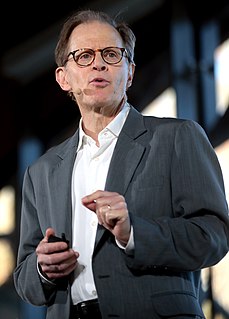A Quote by Brian Lindstrom
It can be difficult to present mental illness in film without resorting to devices that, if not handled well, can seem heavy-handed or cliché.
Related Quotes
When you have mental illness you don't have a plaster or a cast or a crutch, that let everyone know that you have the illness, so people expect the same of you as from anyone else and when you are different they give you a hard time and they think you're being difficult or they think you're being a pain in the ass and they're horrible to you. You spend your life in Ireland trying to hide that you have a mental illness.
The very term ['mental disease'] is nonsensical, a semantic mistake. The two words cannot go together except metaphorically; you can no more have a mental 'disease' than you can have a purple idea or a wise space". Similarly, there can no more be a "mental illness" than there can be a "moral illness." The words "mental" and "illness" do not go together logically. Mental "illness" does not exist, and neither does mental "health." These terms indicate only approval or disapproval of some aspect of a person's mentality (thinking, emotions, or behavior).
When I talk to the National Alliance on Mental Illness (NAMI) and other patient support groups, I take questions at the end. At one talk I was asked, "What's the difference between yourself and someone without mental illness?". At another talk I was asked, "How do you make the voices be not so mean?". I wish I knew.
Recent studies of mindfulness practices reveal that they can result in profound improvements in a range of physiological, mental, and interpersonal domains in our lives. Cardiac, endocrine, and immune functions are improved with mindfulness practices. Empathy, compassion, and interpersonal sensivity seem to be improved. People who come to develop the capacity to pay attention in the present moment without grasping on to their inevitable judgments also develop a deeper sense of well-being and what can be considered a form of mental coherence.
The difference in the quality of medical care received by people with mental illness is one of the reasons why they live shorter lives than people without mental illness. Even in the best-resourced countries in the world, this life expectancy gap is as much as 20 years. In the developing countries of the world, this gap is even larger.





































